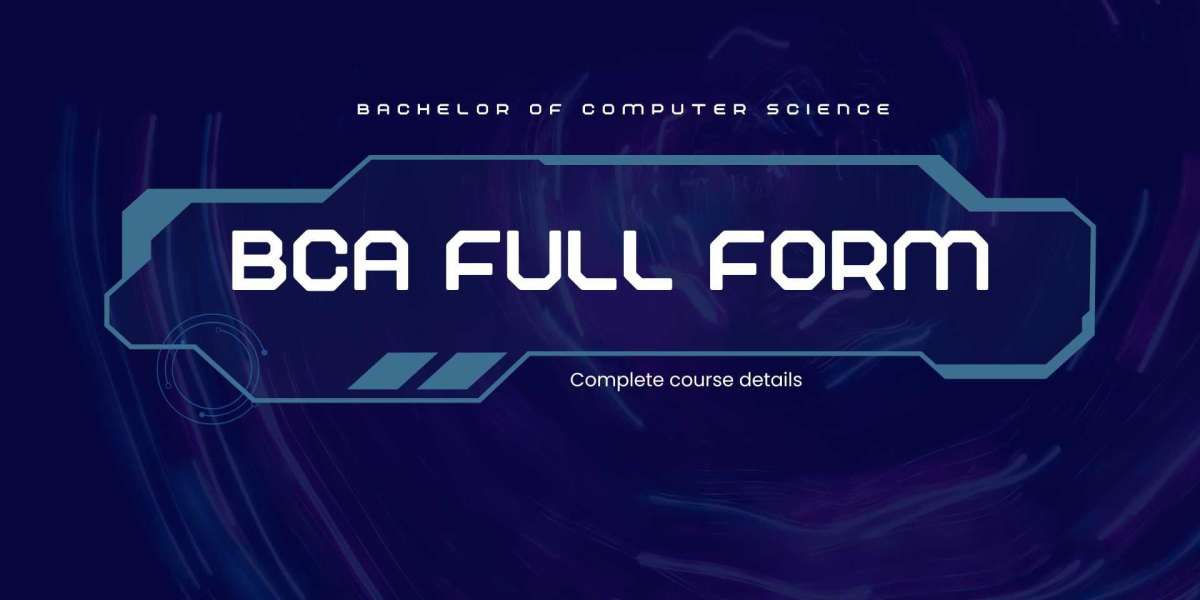The BCA full form, Bachelor of Computer Applications, is one of the most popular undergraduate courses for students aspiring to build a career in IT. While the program is designed to equip you with essential knowledge and skills in computer applications, succeeding in a BCA program requires consistent effort, strategic planning, and effective learning techniques.
If you’re currently enrolled in or planning to pursue a BCA program, this guide will provide you with actionable tips and tricks to excel in your studies and prepare for a successful career.
Understanding the BCA Program
The BCA full form is Bachelor of Computer Applications, and it is a 3-year undergraduate course divided into six semesters. It focuses on computer science, software development, web technologies, and IT fundamentals.
Key Objectives of a BCA Program
- Equip students with programming and coding skills.
- Build a strong foundation in database management, networking, and software engineering.
- Prepare students for real-world IT challenges through practical projects.
- Foster problem-solving and critical-thinking abilities.
To succeed in this program, you need to approach your studies with a strategic mindset, actively participate in learning, and develop skills that go beyond textbooks.
Essential Tips to Succeed in a BCA Program
Here are some practical tips and tricks to help you excel in your BCA journey:
1. Understand the Curriculum Thoroughly
- Familiarize yourself with the subjects and topics covered in each semester.
- Identify core areas like programming languages, database management, web development, and software engineering.
- Create a roadmap to cover all topics systematically.
2. Focus on Practical Learning
- Most BCA concepts are practical in nature, so focus on applying what you learn.
- Spend time in computer labs experimenting with coding, software tools, and projects.
- Participate in group projects to learn teamwork and collaboration.
3. Master Programming Languages
- Programming is a core component of BCA. Start with beginner-friendly languages like C and Python before moving to advanced ones like Java.
- Practice writing code every day to improve your problem-solving skills.
- Use online coding platforms like HackerRank or LeetCode to enhance your coding abilities.
4. Stay Organized with Study Schedules
- Create a detailed study schedule to allocate time for each subject and practical sessions.
- Break your study sessions into manageable chunks to avoid burnout.
- Prioritize difficult topics and allocate extra time for revision.
5. Take Advantage of Online Resources
- Use platforms like YouTube, Coursera, and Udemy to explore additional tutorials and courses.
- Refer to online documentation for programming languages and tools.
- Join forums like Stack Overflow to discuss and resolve doubts.
6. Participate in Workshops and Seminars
- Attend workshops, hackathons, and IT seminars to gain practical insights into industry trends.
- Networking with professionals and peers can provide guidance and open new opportunities.
7. Develop Communication and Soft Skills
- Effective communication is essential for IT professionals. Work on your presentation and writing skills.
- Practice teamwork by participating in group projects and activities.
- Soft skills such as problem-solving and adaptability will make you more employable.
8. Work on Projects and Internships
- Apply your knowledge through practical projects, whether academic or personal.
- Participate in internships to gain real-world experience and build your resume.
- Focus on projects that showcase your skills in programming, web development, or app creation.
9. Stay Updated with Industry Trends
- Technology evolves rapidly, so stay informed about the latest trends like artificial intelligence, cloud computing, and cybersecurity.
- Follow IT blogs, read tech news, and subscribe to programming channels.
10. Seek Help When Needed
- Don’t hesitate to approach your professors or peers if you’re struggling with a topic.
- Join study groups to exchange knowledge and ideas.
- Utilize college resources such as libraries and mentoring programs.
Habits to Cultivate for Long-Term Success
In addition to the tips above, cultivating certain habits can contribute to your success in the BCA program:
- Time Management: Allocate specific time slots for studying, projects, and leisure activities.
- Discipline: Be consistent in attending lectures, completing assignments, and meeting deadlines.
- Self-Motivation: Keep reminding yourself of your goals and aspirations.
- Adaptability: Be open to learning new skills and technologies.
Challenges Students May Face in BCA
While BCA is beginner-friendly, students may encounter some challenges, such as:
- Difficulty understanding programming languages initially.
- Managing time between theory and practical work.
- Staying motivated during complex topics like data structures or algorithms.
To overcome these challenges, maintain a positive mindset, seek support, and adopt the strategies mentioned earlier.
Career Opportunities After BCA
After completing BCA, you can explore diverse career paths in the IT industry, including:
- Software Developer
- Web Developer
- Database Administrator
- System Analyst
- IT Support Specialist
- Mobile App Developer
You can also pursue higher education, such as an MCA (Master of Computer Applications) or certifications in areas like cloud computing or data analytics, to enhance your career prospects.
Conclusion
Succeeding in a BCA program requires a combination of consistent effort, practical learning, and strategic planning. The BCA full form, Bachelor of Computer Applications, represents a stepping stone for students aspiring to build a career in IT.
By focusing on understanding the curriculum, mastering programming, participating in projects, and developing both technical and soft skills, you can excel in your BCA journey. Stay motivated, seek guidance when needed, and use the resources available to you. With determination and the right strategies, you can make the most of your BCA program and achieve your career goals.
FAQs
1. What is the BCA full form?
The BCA full form is Bachelor of Computer Applications, an undergraduate course focused on IT and computer science.
2. How can I manage my time effectively during the BCA program?
Create a study schedule, prioritize tasks, and allocate specific time slots for each subject and practical sessions.
3. Do I need prior knowledge of programming to succeed in BCA?
No, the BCA program is beginner-friendly and starts with basic programming concepts, making it suitable for students without prior experience.
4. What are the career options after BCA?
After BCA, you can work as a software developer, web developer, database administrator, system analyst, or IT support specialist.
5. Can I pursue higher studies after BCA?
Yes, you can pursue higher studies such as MCA (Master of Computer Applications) or certifications in advanced IT fields to enhance your skills and career prospects.



